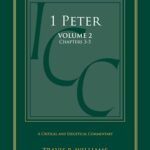Is There Such a Thing as the Septuagint?: Analyzing Peter Williams’s objections (Part Two)
Note: This post, as well as future and past posts concerning the Septuagint, are rough drafts for a potential upcoming book on the Septuagint. Accordingly, these posts will be removed at a future date. In regard to this article, it is the second of two which analyze and then answer an objection to the use of the term Septuagint. The first essay surveyed the objection, while this one provides a defense of the term.
RESPONDING TO THE ARGUMENTS AGAINST THE TERM “SEPTUAGINT”
It may be surprising to find that I agree with Williams in much of his argumentation. I even agree that there is no such thing as “The Septuagint.” And I am not alone; Karen Jobes and Moises Silva, in their influential Invitation to the Septuagint (note the name) say, “Strictly speaking, there is really no such thing as the Septuagint.”[1] Despite our agreement, I fall short of saying that the term should not be used. The case against the term “the Septuagint” is based primarily on the necessity of having precise terminology in advanced research. Williams has clearly shown that the current usage of the term “the Septuagint” lacks such precision. Nevertheless, I am not convinced he has demonstrated that the term is not helpful for more general purposes. In this section of the chapter, we will walk through Williams’s three arguments in order to make room for the usage of the term.
First, Williams has helpfully detailed the evolution of the term “Septuagint” from a plural, personal word to a singular, reified word. Such history is interesting, yet it is somewhat unsurprising. The history of many words involves evolution and sometimes seismic change. And as with all lexical study, it is important to keep the diachronic and synchronic distinction in mind. A diachronic perspective views the meaning and use of a word through time, while a synchronic perspective views the meaning and use of a word at a particular time. The word “Septuagint” has a colorful history of use and meaning through time, yet such history does not necessarily influence modern meanings of the word. Just as the word “nice” no longer indicates ignorance, so “Septuagint” no longer indicates the translators of the Pentateuch. Stated succinctly, the diachronic study of a word is separate from the usefulness of that word in a particular historical context. While there may be much confusion historically concerning the definition of “the Septuagint,” it is our contention that there is enough unity of thinking on the term in the present day to make it useful.
The second problem—the extent of the term—is more challenging. Of course, part of it can be answered in a similar way as we answered the first problem. In the present day, people do not generally use “Septuagint” to refer only to the Pentateuch, unless using it in a highly technical, text-critical sense. Nevertheless, it is clear that there is disagreement concerning the scope of the term in the present. But we must put such disagreement in context. From the earliest stages, the works which we include in the Septuagint were not compiled in a book but were rather on scrolls. Books were introduced in the second century mainly by Christians. Thus, the question, “What books would Paul have included in the Septuagint?” is a non-starter for two reasons. First, Paul did not know the term “Septuagint,” which was coined after his time. Second, Paul would have considered which translated works in Greek had some form of authority, but he would have had no conception of an enclosed body of works bound together.
The earliest surviving compilations into bound books (e.g., Sinaiticus, Vaticanus, etc.) reveal that there was no uniform grouping of Greek translated texts. As Jobes and Silva note, our earliest codices “came to be by the historical happenstance of whatever texts were at hand, irrespective of their origin and character.”[2] In light of this complex history, it seems best to allow the term “Septuagint” an inclusive sense, incorporating all of the works historically included in early codices.[3] Defining the term this way is historically appropriate, and it provides the needed clarity concerning what texts are being addressed. One may wish to use other terminology to be more specific, but this definition serves scholarship well by being a general term that can reference a broad corpus.
Though he never says so explicitly, the most significant argument for Williams appears to be the third. And he is right that the term “Septuagint” may mislead. Timothy Michael Law shares the same concern noting that the term Septuagint is “unsatisfactory” for it may be “taken to mean a closed collection of Greek biblical books.”[4] Jobes and Silva add that after hearing the term, “one might understandably, though mistakenly, infer that the Greek translation found in a given ancient manuscript or a modern edition is a homogenous text produced in its entirety at one point in time.”[5] There seem to be two elements of concern here. The first is that the term is imprecise, allowing for understandings that are clearly inaccurate. The second is more problematic, for it appears that the word may mislead.
But once we agree that the term is imprecise, what is the solution? Perhaps we could make the term plural—“Septuagints.” This would solve one element of the problem (the view that there was a unified tradition), yet it might still leave the conception that there was a unified corpus.[6] Further, it is an inelegant solution sure to confuse as much as enlighten. Williams has recognized the challenge of finding better terminology, noting that “it sometimes can be a bit of a pain to avoid the term.”[7] When offering the alternative, “Pre-Christian translations of the Old Testament into Greek,” Williams admits, “I am afraid that is a bit of a mouthful.”[8]
These quotes reveal why the state of affairs exists in the first place. While scholars recognize the diversity (both in number and tradition) veiled within the term “Septuagint,” the word is helpful as a general term. Indeed, while Timothy Law along with Jobes and Silva recognize the potential of misleading by the terminology, they chose to use the term in the titles of their books anyway. They take pains, however, to define their terminology and seek to work against the potential of misunderstanding.[9] Even the two examples Williams offers to indicate misleading terminology, do not actually appear to do so. Williams believes the statements by Fernandez Marcos[10] and Emanuel Tov[11] concerning the Septuagint being the Bible of the NT church give “the impression that the Septuagint was a single identifiable entity, and that books outside the Pentateuch would have been seen as part of that entity.” [12] But these statements are made within books that have thoroughly addressed such issues. In fact, Tov’s statement comes in a section titled “revisions of the Septuagint”! The authors are not confused, and the reader should not be either.
CONCLUSION: DEFINING SEPTUAGINT
As we come to a conclusion, it is worth noting that the problem of the imprecise nature of the term is not unique to our generation. As Greenspoon recognizes, “terminological fuzziness, and the imprecise thinking that goes along with it, are nothing new. In ancient times the term ‘LXX’ had more than one meaning, sometimes in one and the same author, often in one and the same tradition.”[13] Jobes and Silva likewise note that the “ambiguities of the term go back to antiquity.”[14] Thus, Williams is right that the word “Septuagint” is imprecise. Yet its weakness is its strength. The general nature of the term allows for general discussion. When more specificity is needed, it can be given.[15]
While we do not take Williams’s advice on ceasing to use the term “Septuagint,” we take seriously his concerns. Walking through them has served to reveal the complexity of the study of the Septuagint, and thus has served as a good introduction for the complexities of the LXX. It has also stressed the need for clear definitions, which can now be supplied.
In light of what is said above, I offer the following definitions.
- Septuagint: the Greek translations of Hebrew writings with their recensions along with original Greek writings that are found in our earliest codices. In this way, speaking of the “Septuagint” is like speaking of the “English Bible,” referencing all of them without any particular one in mind. The word can also be used in a more specific sense when referring to a particular critical edition—e.g., Rahlf’s Septuagint or the Göttingen Septuagint.
- Septuagint Proper: the original Greek translation of the Pentateuch. While some have sought to limit the term Septuagint only to the original Pentateuch translations, I have found it better to distinguish the original translation with further specificity. Thus, when I speak of these books in particular, I will add “proper” for clarification.
- Old Greek (OG): the original translations of non-Pentateuch works. Of course, there is some debate concerning which translation is the earliest. Nevertheless, this terminology is used to specify the earliest recoverable text of a particular book. Thus, OG Isaiah references the earliest translation (according to current scholarly consensus) of the book of Isaiah. Reference may also be made to the OG Pentateuch, which is equivalent to Septuagint Proper.
[1] Karen H. Jobes and Moisés Silva, Invitation to the Septuagint, 2nd ed. (Grand Rapids: Baker Academic, 2005), 14.
[2] Jobes and Silva, Invitation to the Septuagint, 15.
[3] Cox notes that “The term “Septuagint” is extended to those translations and writings that are part of the Greek corpus that began with the translation of the Torah and is attached to the (Greek) NT in MSS such as Vaticanus (4th cent.), Sinaiticus (4th cent.), and Alexandrinus (5th cent.).” Claude Cox, “Some Things That Biblical Scholars Should Know about the Septuagint,” Restoration Quarterly 56 (2014): 87.
[4] Timothy Michael Law, When God Spoke Greek: The Septuagint and the Making of the Christian Bible (New York: Oxford University Press, 2013), 8.
[5] Jobes and Silva, Invitation to the Septuagint, 15.
[6] Williams would also not like the solution, for the term Septuagint brings up historical events unrelated to many of the translations of the Hebrew Scriptures into Greek.
[7] Williams, “Why I Don’t Believe in the Septuagint.”
[8] Ibid.
[9] Law, for instance, says “when I say, for example, that the New Testament authors used the Septuagint, I am fully aware of the complexities of identifying the original Septuagint and its revisions and of the fact that before the fourth century Jews and Christians would not have been carrying to their debates two calf-skin leather Bibles with their name engraved on the front.” Law, When God Spoke Greek, 8.
[10] Natalio Fernndez Marcos, The Septuagint in Context: Introduction to the Greek Version of the Bible, trans. Wilfred G. E. Watson (Atlanta: Society of Biblical Literature, 2009), 338.
[11] Emanuel Tov, Textual Criticism of the Hebrew Bible, 2nd rev. ed. (Minneapolis: Fortress Press, 2001), 143.
[12] WIlliams, “The Bible, the Septuagint, and the Apocrypha: A Consideration of Their Singularity,” 177.
[13] Greenspoon, “The Use and Abuse,” 26.
[14] Jobes and Silva, Invitation to the Septuagint, 17.
[15] Greenspoon calls for more specificity in scholarly literature, noting that the fluidity of the term “Septuagint” is not acceptable when precision is necessary. Of course, part of the difficulty is coming up with commonly accepted terminology.


